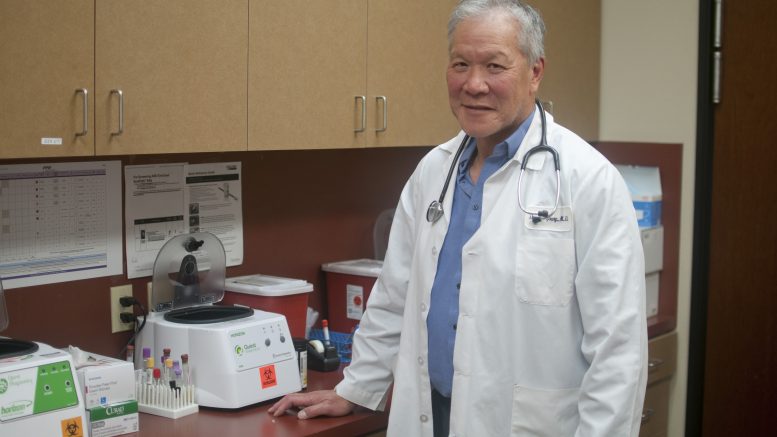Urinary tract infections (UTI) can lead to serious complications, including sepsis (infections in the blood) that can lead to organ failure and more. A vaccine could help thousands of lives every year.
By Krysta Scripter
Urinary tract infections are very common infections. It typically involves the lower urinary tract meaning the bladder and the urethra. Women tend to have more urinary tract infections than men because of their anatomic differences. Senior women also typically have higher rates of urinary tract infections because of hormonal changes and changes in the tissue involved in the urinary tract.
Douglas Young, M.D., of Northern California Research says a vaccine could prevent major complications from urinary tract infections.
Northern California Research in Sacramento needs participants for a trial of a UTI vaccine that could be a potential lifesaver.
UTIs can affect anyone, but seniors — who may struggle with things such as incontinence, tissue atrophy and other related issues — may face more complications. These populations are especially vulnerable to sepsis, which can start from a UTI and devolve into organ failure.
“The vaccine is not necessarily to prevent the day-to-day urinary tract infections that we see in the clinic,” Dr. Young says. “It’s to decrease the risk to those people from needing to be hospitalized and possibly dying due to sepsis.”
The trial is relatively simple: Participants will be seen at the research clinic for a total of six visits over a three-year period. Participants will be reimbursed financially for the time and travel.
The first visit will include a routine physical exam and a chance for patients to read over all important forms. Then, patients will receive the vaccine or a placebo.The follow up visits are for safety monitoring and completion of research questionnaires.
This vaccine is intended to prevent the invasion of Escherichia Coli (the most common bacterial cause for UTI’s). Preventing these E. Coli invasion can reduce hospitalizations for UTIs or sepsis.
Jesika Riley, CCRC, study coordinator at Northern California Research, says the trial starts with patient evaluations.
“Patients kind of think that there’s more going into it, and really, it’s like anything else: They come in, they’re evaluated to ensure that they meet the criteria to receive vaccines, and once they get it, they’re really just in a three-year follow-up (schedule), which is kind of what you could be with your own doctor,” Riley says. “But we’re here if the subject needs us. So they can call us anytime if they need to come in to be evaluated. But there’s really not a whole lot that they have to do or what’s expected of them.”
If a study subject has UTI symptoms, they are asked to come in for an exam and collection of urine samples to confirm infection. They can receive treatment for the UTI as well.
Still, no trial is without its risks. Dr. Young says he reminds patients of this and ensures that participants have all the information they need to make an informed decision. “There’s still a lot of unknowns,” he says. Many people, he says, feel like the possibility of changing lives is worth the risk, however.
“A lot of people feel that they want to contribute their time and their body basically to the acquisition of knowledge and they’re OK with the risks,” he says.
The clinic is looking for 100 participants for the trial. If you or someone you know may fit the requirements, you can find more information here.
Learn more about Northern California Research at www.northerncaliforniaresearch.com or call 916-484-0500.






























